The Musalsalat Hadith of the Quran
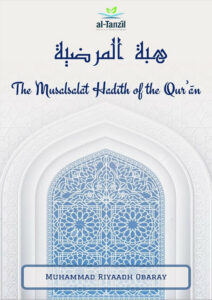
In hadith nomenclature, a musalsal hadith is a hadith in which the transmitters of an isnād share an extra element. This extra element is in reference to additional information pertaining to the peculiar manner in which the hadith was transmitted.
Quranic Verse Enumeration – A Simplified Study of Nathimat al-Zuhr
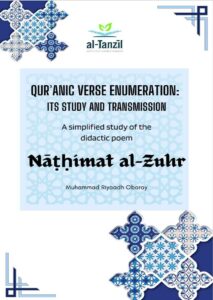
A simplified study of the didactic poem: Nathimat al-Zuhr
After having written commentaries on the didactic poems of Īhāb Fikrī and Maḥmūd ʿAli al-Sharqāwī, I started sharing these works on ʿAdd al-Fawāṣil on various social platforms and groups due to certain misconceptions and misunderstandings relating to the subject. In doing so, there were countless times whereby I was contacted by students who were either experiencing some difficulty with regard to studying or comprehending the text of the Nāṭḥimat al-Zuhr, or found its study to be tedious. After much discussions and deliberations, I was later informed that the Nāṭḥimat al-Zuhr was one of the primary texts being taught regarding ʿAdd al-Fawāṣil, in both the east and the west. Upon hearing this, in mid June 2020, I decided to compile a work extracting the gist of the text as well as simplifying its study, as opposed to writing an English commentary on it.
Quranic Verse Enumeration – A Commentary on al-Tas-hil by Ihab Fikri
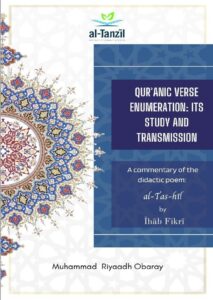
A commentary of the didactic poem: al-Tas-hil by Ihab Fikri
The book at hand discusses the science of ʿAdd al-Fawāṣil – the science which outlines the views of the scholars of Qurʾanic verse enumeration. It is a commentary on the didactic poem entitled al-Tas-hīl fī ʿAdd Āyi al-Tanzīl which was composed by Īhāb Fikrī al-Sakandarī.
Quranic Verse Enumeration – A Commentary on al-Kamil by Mahmud al-Sharqawi
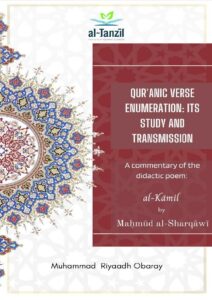
A commentary of the didactic poem: al-Kamil by Mahmud al-Sharqawi
The book at hand discusses the science of ʿAdd al-Fawāṣil – the science which outlines the views of the scholars of Qurʾanic verse enumeration. It is a commentary on the didactic poem entitled Naṭḥm al-Kāmil fī ʿIlm al-Fawāṣil which was composed by Maḥmūd ibn ʿAli ibn Shuʿayb al-Sharqāwī and is based on a much earlier work al-Bayān fī ʿAdd Āyī al-Qurʾān, by the erudite scholar, Abū ʿAmr al-Dānī.
Despite their being many works written in Arabic on the subject, I was unaware of any books that were written and was easily accessible to students via the English medium
The Qurra of Desouk
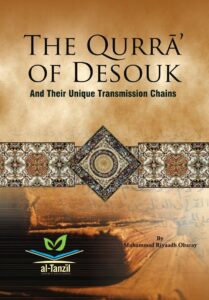
A trend that one notes amongst the international fraternity of muqriʾs is giving due recognition to those who have the highest sanad in world. The 1990’s deemed Shaykh al-Zayyāt to have the highest sanad in the world. The next decade identified Shaykh al-Ṭarābīshī as having the highest sanad. Currently, the muqriʾs from Desouk, Egypt, are conceded to have the highest asānīd in the world.